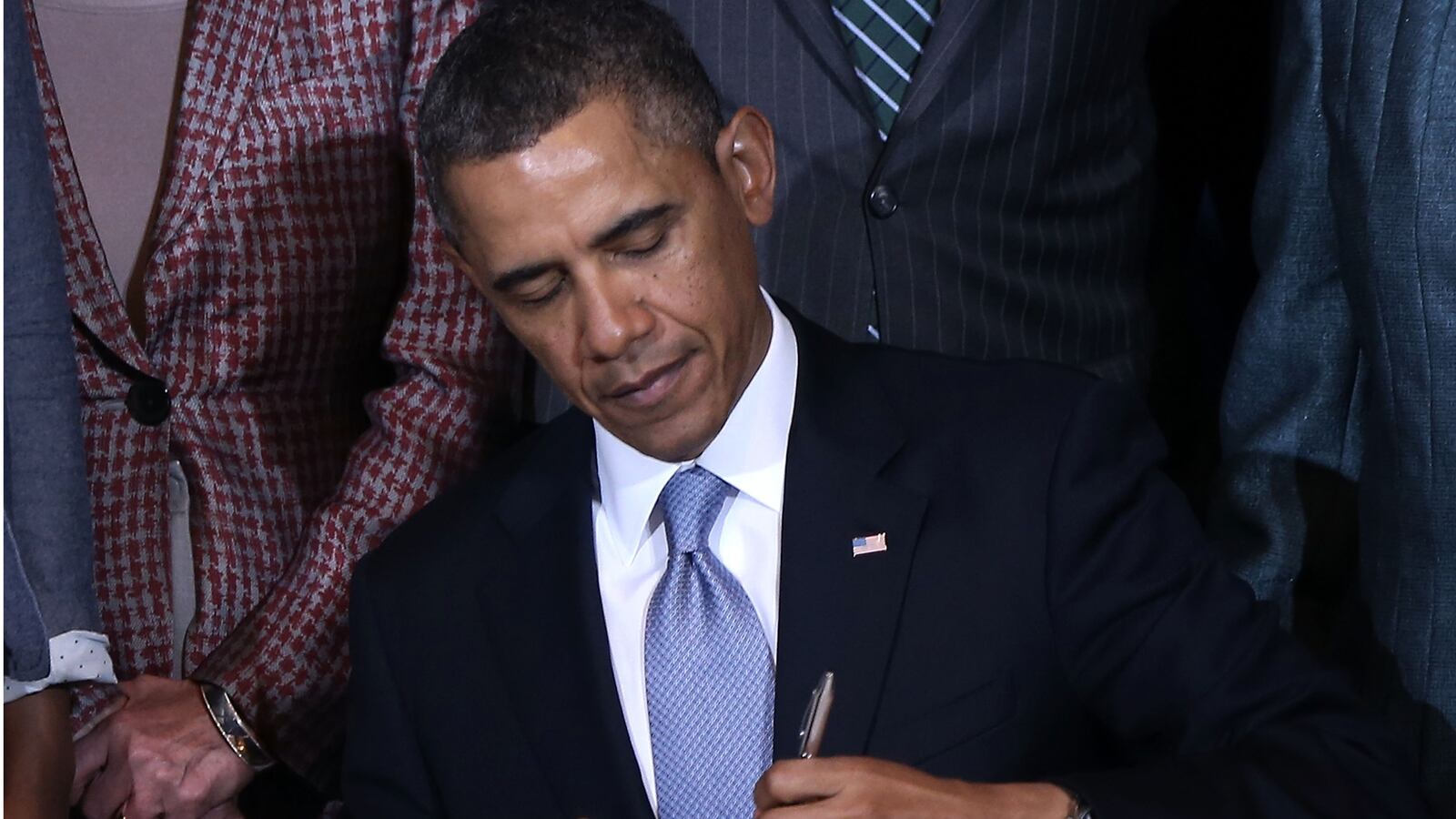The Daily Beast’s recent article, boldly titled “Media Balks at Band-Aid Shield Law,” concludes that the proposed media shield law—that nearly passed Congress in 2009, and was reintroduced again this month—is merely the White House’s attempt at damage control after the Associated Press subpoena scandal. The article further asserts that the media has roundly rejected the proposal as weak.

That conclusion is exactly wrong. In fact, the media overwhelmingly supports a shield law effort. The article reaches its conclusion without quoting a single news organization. Had the Daily Beast reached out to the news organizations that regularly receive and fight subpoenas, it would have learned of the widespread support to pass the first ever federal statute that protects the confidentiality of journalists’ sources. More than 50 media organizations have joined a coalition to support a shield law in the past week, including most newspaper publishers, television networks, and the associations for the newspaper, broadcasting and magazine publishing industries. The Society for Professional Journalists, quoted in the article as opposing the effort, has in fact supported the shield law effort since it began in 2004.
Without a federal shield law, no statute enables journalists to challenge federal government subpoenas for information about their confidential sources. Instead, reporters must rely on a relatively weak First Amendment privilege, which some federal courts refuse to recognize at all.
This federal system is in stark contrast to the 49 states that have passed shield laws or have common law protection for sources. In those states, journalists have at least some statutory protection from subpoenas and can determine whether the government or private litigants would succeed in subpoenaing their sources.
The article also claims that the proposed shield law would not have prevented the Justice Department from notifying the AP before obtaining its call records. We don’t know the details of the AP case, so we can’t say that this is correct. The House bill, introduced last Thursday, contains strong protection for leakers and probably would have prevented the subpoena. The Senate version of the bill, which the Obama Administration approved, contained important limits on searches of telephone records for leak information, although with more exceptions for national security. But putting this aside, both bills have one overwhelming advantage—rather than the Justice Department itself deciding what it should do, the bill would force the Justice Department to obtain approval from an independent federal judge to approve the subpoena, and to approve withholding knowledge of it from the news outlet. So in the AP case, an independent judge, rather than a prosecutor, would have determined whether the subpoena was necessary, whether the scope should have been narrowed to prevent disclosure of non-essential information, and whether the government could withhold knowledge of the subpoena from the AP. Without the shield law, federal prosecutors and their supervisors have absolute discretion to determine whether to provide advance notice and how broad the subpoena can be.
The article also quotes some advocates as stating that the shield bill should be rejected because it is impossible to define who a “journalist” is in this age of blogging and social media. But the Senate bill contains a functional definition, rather than a definition bounded by traditional media outlet boundaries, which includes dissemination of news and information by electronic means. Similar language was held to cover bloggers in the Apple case in California many years ago. And, in any event, just-introduced legislation can always be improved during the legislative process.
President Obama has supported a federal shield law since he was a senator. He supported it as a candidate. His administration supported it when he became President. The article questions his reasons for reaffirming his support shortly after the AP news became public. We have no reason to question that support, but news organizations welcome all support for this bill, regardless of the reason. We must move beyond the political blame game and pass legislation that will preserve America’s longstanding tradition of robust investigative journalism.





